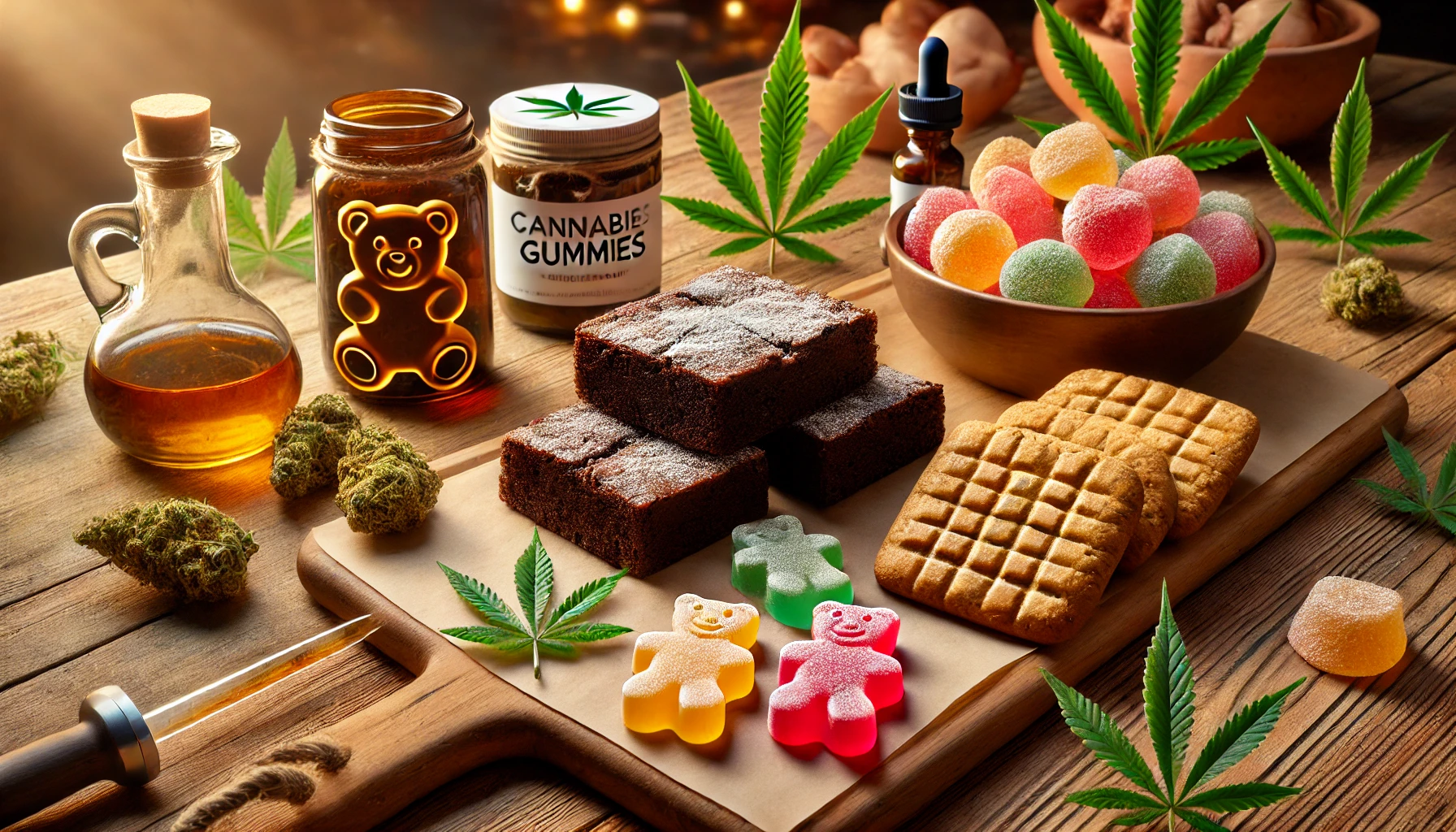If you’ve ever heard someone say, “Edibles just don’t work for me,” they might not be exaggerating. There’s a growing discussion in the cannabis community about a phenomenon known as “ediblock,” where certain individuals find themselves immune to the effects of cannabis-infused edibles. But what causes this, and is there a way around it?
“I drank 2000 mgs of tincture, and ate a Incredibles bar with another 250 mg and nothing.”
Founder – Tim Vee -Ediblock sufferer

What Is Ediblock?
Ediblock refers to a person’s inability to feel the psychoactive effects of THC (tetrahydrocannabinol) when consuming edibles. Despite eating a sufficient dose, these individuals experience little to no high, leaving them puzzled while everyone else at the party is laughing uncontrollably or glued to the couch.
This phenomenon isn’t officially recognized in scientific literature, but anecdotal evidence from cannabis users suggests it’s more common than you might think.

How Edibles Work
To understand ediblock, it’s essential to know how edibles affect the body. When you consume an edible, THC travels through your digestive system and is processed by the liver. The liver converts THC into a metabolite called 11-hydroxy-THC, which is more potent and longer-lasting than THC absorbed through smoking or vaping. This is why edible highs tend to feel stronger and last longer than inhaled cannabis.
Why Some People Don’t Feel the Effects
Several factors could explain why edibles don’t work for some individuals:
- Metabolism Differences: Some people’s livers don’t efficiently convert THC into 11-hydroxy-THC. This could be due to genetic differences in liver enzyme activity, particularly the enzyme CYP2C9, which plays a key role in metabolizing THC.
- Digestive Issues: Conditions like Crohn’s disease, irritable bowel syndrome (IBS), or other gastrointestinal problems might interfere with the absorption of THC into the bloodstream.
- Tolerance Levels: Chronic cannabis users might have a high tolerance that extends to edibles. This tolerance can dull the effects of even potent doses of THC.
- Body Fat and Distribution: THC is fat-soluble, meaning it binds to fat cells in the body. Individuals with higher body fat percentages might experience a delay or dampened effects as the THC is stored rather than circulated.
- Dietary Factors: Consuming edibles on an empty stomach or with certain types of food can influence how well THC is absorbed. A lack of dietary fats, for instance, may reduce the body’s ability to process THC efficiently.

Can You Overcome Ediblock?
While there’s no guaranteed solution, here are some tips that might help people who experience ediblock:
- Try Sublingual Consumption: Instead of relying solely on digestion, try cannabis products that absorb through the mucous membranes under the tongue, such as tinctures or lozenges.
- Adjust Your Dose: Some individuals might need a higher dose of THC to feel effects. However, this approach requires caution to avoid overconsumption.
- Pair with Fatty Foods: Consuming edibles with meals high in healthy fats may improve THC absorption and increase the likelihood of feeling effects.
- Try Alternative Consumption Methods: If edibles consistently fail, other methods like smoking, vaping, or topical application might work better for your body.
- Consult a Healthcare Professional: If you suspect digestive or metabolic issues, consult a doctor for advice tailored to your specific health situation.

The Science Still Has Questions
Research on cannabis consumption is still in its infancy, and ediblock remains a largely unexplored area. As legalization expands and studies become more robust, we can expect to learn more about why this happens and how to address it. In the meantime, the best advice is to experiment carefully and keep an open mind about what works for your body.
Final Thoughts
Ediblock might feel frustrating, but it doesn’t mean cannabis isn’t for you. The cannabis experience is highly individual, and what works for one person might not work for another. Whether it’s edibles, smoking, or tinctures, there’s likely a method out there that fits your needs.
Have you experienced ediblock, or do you know someone who has? Share your story—it’s a conversation worth having as we continue to learn more about the fascinating ways cannabis interacts with the human body.

